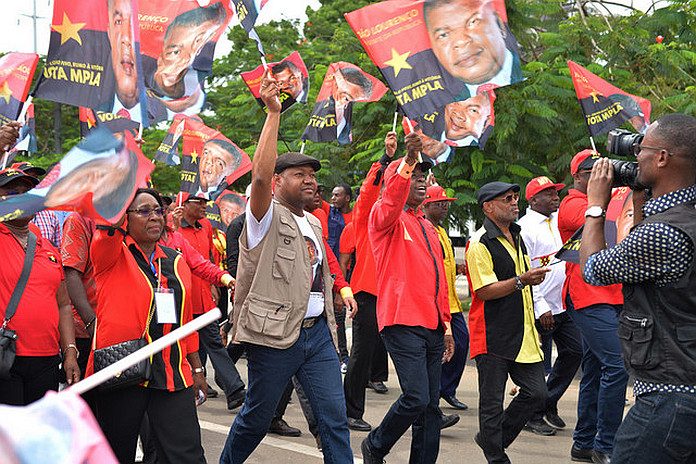LUANDA, Angola – Several marches to repudiate the practices of corruption and impunity, called by the MPLA, (The People’s Movement for the Liberation of Angola) took place on Saturday, in 17 of the country’s 18 provinces.
The marches took place in the provinces of Luanda, Namibe, Zaire, Bié, Benguela, Lunda Sul, Huíla, Moxico, Cuanza Norte, Bengo, Cuando Cubango, Lunda Norte, Malanje, Cunene, Cuanza Sul, Huambo and Uíge.
The demonstrations took place at a time when the government, supported by the MPLA, intensified the fight against monopoly groups and against bad managers of public assets, in fulfillment of its electoral programme.
In the capital of the country, at least three thousand citizens took part in a march, which started at the Luanda Provincial Committee of the MPLA and ended up in the Largo das Escolas site, near the Independence Square, promoting messages of encouragement for the government to continue the fight against corruption.
At the end of the act, the MPLA’s first provincial secretary, Sérgio Luther Rescova, stated that the fight against corruption is a commitment that everyone has to support.
The politician reiterated his support for the measures implemented by the President of the Republic, João Lourenço, since he took power on September 26, 2017.
The fight against corruption, impunity, embezzlement and money laundering are among the main actions of the government, led by the MPLA.
Within the framework of these measures, carried out by the judicial authorities, the country has recovered several assets built with public funds, which were under the management of private entities, and improved the management of public affairs.
In the same context, Angolan government and judicial authorities are working hard to end monopoly groups that hinder free competition and undermine the business environment.
To this end, the government has since 2017 used new strategies to combat harmful practices that, for more than 40 years, have widened social inequalities.
Since 2018, several personalities that were part of the government and public managers have been investigated by the Attorney General’s Office (PGR), some of whom have already been tried and convicted.





